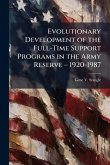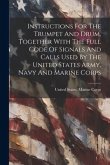Officer education is a major component in the preparation for the next war. The Command and General Staff College (CGSC) is the Army's principal institution for educating field grade officers. War's chameleon nature sometimes denies and frustrates the ability of nations to accurately predict and prepare for the next war. The major dichotomy plaguing the prediction and preparation for the next war is major conventional combat operations and irregular warfare. Army doctrine currently places these supposed polar opposites within the full spectrum of operations. This research examines how well CGSC prepared officers for full spectrum operations in two historical case studies. This monograph argues that CGSC failed to prepare officers for full spectrum operations. Three significant factors contributing to this failure are the nature of the strategic environment and how it informs senior leaders and CGSC; the incidence of normal theory of civil-military relations; and multi-layered cognitive dissonance amongst Army senior leaders and within the Army officer corps. The strategic environment facilitates the nation's ability to differentiate between national survival and national interest as it prioritizes national security concerns. The strategic, foreign policy-making conversations between Army senior leaders and the President underscore the importance of civil-military relations. The complexity of the strategic environment and the civil-military relationship can create dissonant ideas for individuals and the institution. This monograph concludes with recommendations for officer education to address these three concerns. This work has been selected by scholars as being culturally important, and is part of the knowledge base of civilization as we know it. This work was reproduced from the original artifact, and remains as true to the original work as possible. Therefore, you will see the original copyright references, library stamps (as most of these works have been housed in our most important libraries around the world), and other notations in the work. This work is in the public domain in the United States of America, and possibly other nations. Within the United States, you may freely copy and distribute this work, as no entity (individual or corporate) has a copyright on the body of the work. As a reproduction of a historical artifact, this work may contain missing or blurred pages, poor pictures, errant marks, etc. Scholars believe, and we concur, that this work is important enough to be preserved, reproduced, and made generally available to the public. We appreciate your support of the preservation process, and thank you for being an important part of keeping this knowledge alive and relevant.
Bitte wählen Sie Ihr Anliegen aus.
Rechnungen
Retourenschein anfordern
Bestellstatus
Storno








